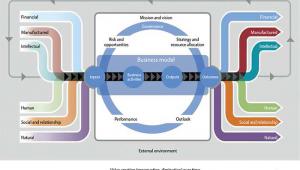By Nick Mann | 20 August 2012
The major role government spending is playing in Malaysia’s economic growth could increase pressure on the country’s public finances, Fitch Ratings warned today.
Government figures published on Wednesday showed a 5.4% increase in the size of the Malaysian economy in the second quarter of 2012, supported by what the Malaysian central bank described as ‘robust’ growth in both public and private spending.
In particular, Fitch highlighted a 28.9% year-on-year increase in public sector investment in the second quarter of 2012. This followed a 10% increase in the previous three months and public sector consumption increases of more than 20% in the third and fourth quarters of 2012.
With a government debt to gross domestic product ratio of 51.8% at the end of 2011, Malaysia’s public finances – rated A minus – compare poorly with both the A and triple B ratings averages.
The agency expects the government to meet its 2012 deficit target of 4.7% of GDP but is unclear how the country will meet its future deficit and debt reduction goals.
‘The Malaysian authorities have yet to outline a credible near-term plan to reduce the fiscal deficit to 3% of GDP, and the debt/GDP ratio to 50%, by 2015, in line with their official targets,’ it said.
‘This will be challenging without significant fiscal reform to address the cost of fuel subsidies, broaden the fiscal revenue base, or reduce dependence on energy-linked revenues.’
The requirement for a general election to be called by June 27, 2013 makes substantial progress on fiscal consolidation unlikely before then, it added.
Without reforms, Fitch said it expects Malaysia’s debt to GDP ratio to continue to rise until 2016. The country increased its debt ceiling from 45% of GDP to 55% in July 2009 to pump stimulus into the economy and could have to do so again if it missed its fiscal goals. Doing so could put pressure on Malaysia’s credit outlook, Fitch said.
The agency noted, however, that Malaysia’s record of domestic economic stability, its strong external credit position and funding flexibility meant that it’s A minus rating with a stable outlook remained intact.












